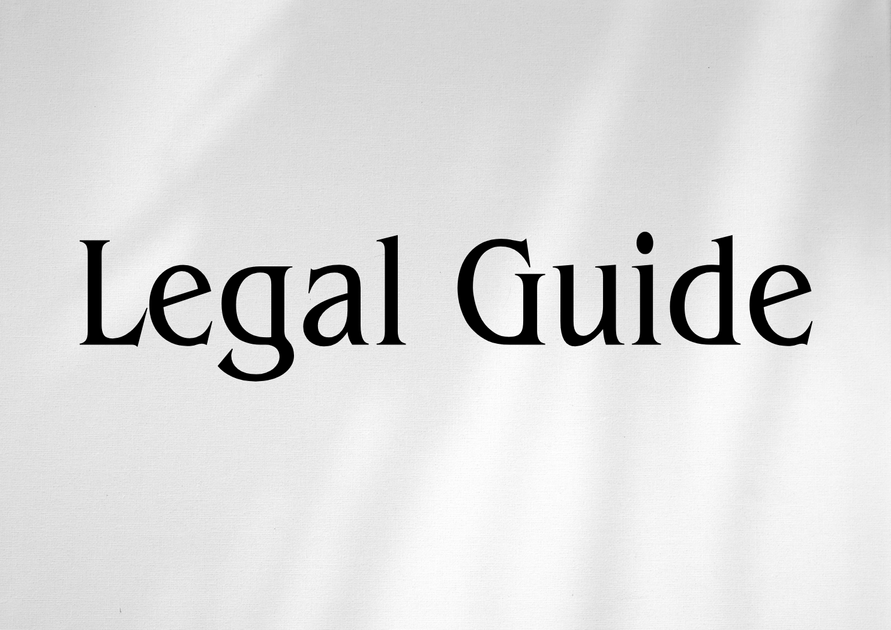Introduction: Navigating Director Responsibilities in Qatar
The evolving landscape of corporate governance in the Gulf Cooperation Council (GCC) region, especially Qatar, calls for an advanced understanding of director duties and liabilities under current Qatari law. For executives, legal practitioners, and HR professionals based in the UAE, gaining clarity on these duties is not merely an academic exercise—it is a practical necessity for multinationals, regional businesses, and foreign investors operating across GCC jurisdictions.
Recent legal reforms have amplified the complexity and consequences of non-compliance, both in Qatar and the UAE. This article delivers a consultancy-grade analysis of Qatari director obligations, major statutory provisions, legal risks, and practical guidance, referencing core legislative frameworks—including Qatar’s Commercial Companies Law (Law No. 11 of 2015 and its 2021 amendments) and their relevance for UAE businesses. Our analysis draws on official legal sources and is tailored for corporate leaders invested in robust governance, compliance, and risk mitigation, especially in light of new UAE law updates for 2025.
Understanding Qatari director duties is crucial for UAE-based firms with Qatari operations or business ties. This article will equip you with actionable insights, risk prevention strategies, and best-practice recommendations rooted in verified Qatari and UAE sources.
Table of Contents
- Overview of Directors’ Legal Framework in Qatar
- Core Duties of Directors Under Qatari Law
- Scope of Director Liabilities and Legal Exposure
- Comparing Old and Amended Qatari Companies Law
- Risks of Non-Compliance: Legal and Financial Consequences
- Practical Scenarios and Case Studies
- Enhancing Compliance: Governance and Risk Management
- Qatari Company Law in UAE Business Context
- Best Practices for UAE-Based Businesses with Qatari Exposure
- Conclusion: Future Directions and Proactive Compliance
Overview of Directors’ Legal Framework in Qatar
1. Commercial Companies Law (Law No. 11 of 2015, as amended by Law No. 8 of 2021)
Qatar’s core corporate governance structure is set out in Law No. 11 of 2015 (“the Companies Law”), revised by significant amendments in 2021 (Law No. 8 of 2021). The law applies to all Qatari-incorporated commercial companies, including joint stock companies (QSC), limited liability companies (LLC), and branches of foreign entities. It codifies substantive and procedural standards for director conduct, reporting, conflict management, and stakeholder protection.
| Legal Source | Applicability | Recent Update |
|---|---|---|
| Commercial Companies Law (2015) | All Qatari Commercial Entities | Baseline Framework |
| Amending Law No. 8 (2021) | All Companies (LLC, QSC, Foreign Branches) | Director Accountability & Reporting |
Directors’ powers, appointment, eligibility, removal, and collective responsibility are thoroughly addressed for both public and private companies under the Companies Law, as enforced by the Ministry of Commerce and Industry (MoCI).
Core Duties of Directors Under Qatari Law
2. Statutory Duties of Care, Loyalty, and Good Faith
The Companies Law stipulates multifaceted duties for company directors, which are conceptually and substantively aligned with international best practice, yet distinguished by local legal nuances. The principal obligations include:
- Duty of Care: Directors must act with the level of diligence, skill, and prudence reasonably expected from professionals in a comparable capacity (Article 101 et seq., Companies Law).
- Duty of Loyalty: Directors must act in the interests of the company over personal or third-party interests. Conflicts of interest must be fully disclosed and authorized by shareholders or the board.
- Duty of Good Faith: Directors are required to act honestly, without abuse of authority or use of confidential information for private gain.
| Duty | Description | Reference |
|---|---|---|
| Care | Exercise reasonable skill and diligence | Art. 101-102 |
| Loyalty | Act in company’s interest, avoid conflicts | Art. 104 |
| Good Faith | Integrity, fairness, transparency | Art. 101, 104 |
3. Specific Statutory Obligations
In addition to these general duties, Qatari law imposes explicit requirements on directors, including:
- Disclosure of Personal Interests: Directors must disclose direct or indirect interests in contracts with the company. Approval is required at the board/shareholder level (Art. 104).
- Corporate Opportunity Doctrine: Directors should not exploit company opportunities for private advantage unless authorized by the company.
- Financial Oversight and Reporting: Mandatory preparation and timely filing of audited financial statements and management reports with the MoCI (Art. 126-131).
- Non-Competition: Directors cannot compete with the company without explicit board consent or shareholder approval (Art. 105).
- Cheque and Payment Liability: In situations where the company is a cheque issuer, directors may in some cases be exposed to liability vis-à-vis dishonoured corporate cheques.
4. Restrictions on Delegation and Decision-Making
While delegation is permitted, directors retain ultimate responsibility and must properly supervise executive acts, affirming the non-delegable nature of core duties under Article 104. Risk-based decision-making is permitted so long as it achieves reasonable commercial judgment and procedural fairness.
Scope of Director Liabilities and Legal Exposure
1. Civil Liability
Pursuant to the Companies Law, directors face personal civil liability in the following cases:
- Breach of Statutory Duties: Where directors act negligently, cause loss to the company or third parties, or breach the law or company articles.
- Loss or Damage Suffered by Shareholders/Third Parties: Shareholders, creditors, or the company itself can initiate civil claims for damages.
- Joint and Several Liability: Where a board acts collectively, liability may be shared unless a director can demonstrate absence of participation or formal dissent.
2. Criminal Liability
The Companies Law, along with Qatar’s Penal Code (Law No. 11 of 2004), sets out criminal sanctions for corporate directors who engage in fraud, embezzlement, forgery, or willful misrepresentation (Articles 337–344). Sanctions may include fines, imprisonment, and director disqualification.
| Breach Type | Potential Sanctions | Statutory Reference |
|---|---|---|
| Disclosure Deficiency | Fines (up to QAR 50,000), removal | Art. 151, 152 |
| Financial Reporting Misconduct | Imprisonment, fines, liability | Art. 166–167 |
| Fraud/Embezzlement | Prison terms, asset forfeiture | Criminal Code, Art. 340+ |
3. Administrative Penalties
The MoCI may apply regulatory sanctions for failure to properly file annual returns or comply with statutory notice periods, including fines and possible suspension of company activities.
Comparing Old and Amended Qatari Companies Law
1. Key Differences: Law No. 11 of 2015 vs. Law No. 8 of 2021
The 2021 amendments have sharpened the focus on transparency, accountability, and risk oversight for directors. UAE-based businesses should note the following critical changes:
| Aspect | 2015 Law | 2021 Amendments |
|---|---|---|
| Director Election | More flexible, limited process | Clearer eligibility & term limits |
| Conflict Disclosure | General requirement | Detailed process, mandatory minute recording |
| Financial Statement Oversight | Annual submission | Quarterly/Annual, MoCI enforcement power increased |
| Sanction Severity | Moderate | Higher fines, director disqualification |
For UAE business entities with Qatari board members or cross-GCC boards, ensuring compliance with the newer regime is not optional—it is essential for regulatory defense.
Risks of Non-Compliance: Legal and Financial Consequences
1. Legal Consequences
- Personal Liability: Directors found breaching their statutory duties may face personal prosecution even if actions were company-sanctioned.
- Bans and Disqualifications: Repeat or serious offenders can be banned from serving as directors on Qatari boards.
- Reputational Harm: Regulatory investigations and sanctions can significantly damage personal and corporate brands, including cross-border UAE reputational risk.
2. Financial Consequences
- Corporate Penalties: Up to QAR 1 million in fines for certain violations, subject to amendments and official regulatory orders.
- Shareholder Litigation: Civil compensation and asset recovery suits are increasingly common, especially post-2021 due to enhanced shareholder rights.
Example Compliance Penalty Table
| Offense | Penalty (Pre-2021) | Penalty (Post-2021) |
|---|---|---|
| Failure to Disclose Interest | QAR 10,000 | QAR 50,000 + removal |
| Financial Reporting Breach | QAR 50,000 | QAR 250,000 + audit review / prosecution |
| Unauthorized Competition | QAR 5,000 | QAR 100,000 + civil suit risk |
Practical Scenarios and Case Studies
Hypothetical Example 1: Undisclosed Conflict of Interest
A director of a Qatari LLC, also serving as a director in a competing UAE entity, negotiates a supply contract. Failure to disclose this conflict prompts a MoCI investigation, resulting in personal fines, removal from office, and subsequent shareholder civil litigation. Under both Qatari and UAE company laws, such undisclosed dual roles increase risk exposure—showcasing the need for robust compliance mechanisms.
Hypothetical Example 2: Delayed Financial Statement Submission
A foreign-owned Qatari QSC, operated by a UAE-based parent, fails to submit audited annual accounts on time. The MoCI imposes a regulatory fine and blocks further commercial registrations until compliance is achieved—impacting GCC-wide operations. This reinforces the critical importance of diligent risk management for UAE cross-border boards.
Enhancing Compliance: Governance and Risk Management
1. Key Governance Recommendations
- Board Induction and Training: Periodic director training tailored to Qatari and UAE legal requirements can offset the risk of inadvertent breaches, especially for international appointees.
- Document Management: Regular review of company articles, board resolutions, and minute-keeping ensures fiduciary standard adherence.
- Audit Function Strengthening: Engagement of reputable external auditors and enhanced internal financial controls promotes accountability and discoverability of non-compliant acts.
- Conflicts of Interest Register: Maintaining a director interests register and enforcing pre-transactional approval processes enables timely mitigation of conflict dangers.
2. Suggested Visual: Compliance Checklist
- Director eligibility verified?
- Signed declaration of independence?
- Annual and quarterly accounts submitted?
- Conflicts register updated and approved?
- Director duties and limits embedded in employment contracts?
Qatari Company Law in UAE Business Context
1. GCC Harmonisation and Divergences
While both UAE and Qatar have made admirable advances in modernising their company laws and enforcing director accountability, there are key divergences. UAE Federal Decree-Law No. 32 of 2021 (and updates through 2025) shows convergence in core duties, but UAE law permits broader company types and different dispute resolution frameworks.
| Aspect | UAE Federal Decree-Law No.32 (2021–2025) | Qatari Law No.11 (2015/2021) |
|---|---|---|
| Director Duties | Care, loyalty, confidentiality, business judgment rule | Care, loyalty, good faith, explicit conflict reporting |
| Registration & Oversight | Ministry of Economy; ADGM/DIFC for local companies | Ministry of Commerce & Industry (MoCI) |
| Dispute Resolution | Onshore and free-zone courts, arbitration | Qatari local courts, arbitration permitted |
Organizations with dual UAE-Qatar structures should regularly coordinate legal advisory reviews to ensure compliance with local particularities, especially with continuously evolving UAE law 2025 updates and GCC integration plans.
Best Practices for UAE-Based Businesses with Qatari Exposure
1. Board Composition and Diversity
- Appoint directors with experience in GCC markets and deep familiarity with both Qatari and UAE regulatory cultures.
- Enforce board-adopted codes of conduct outlining conflict of interest management and disclosure frequency.
2. Cross-Jurisdictional Training
- Instituting joint UAE-Qatar compliance seminars ensures directors are abreast of nuanced, evolving obligations.
3. Proactive Risk Assessment
- Quarterly risk reviews with nominated officers and external legal counsel safeguard against emergent threats, while facilitating transparent board deliberations and bulletproof records for due diligence purposes.
Suggested Visual: Risk Assessment Flow Diagram
A clear process flow depicting escalation of compliance issues from detection to board resolution, legal review, and reporting to relevant Qatari and UAE regulators. This visual aids in building a defensible audit trail for entities operating both locally and regionally.
Conclusion: Future Directions and Proactive Compliance
Qatar’s regime for director duties and liabilities is a testament to its commitment to global standards and modern corporate governance. The 2021 amendments exemplify stricter enforcement, greater transparency, and ‘zero tolerance’ for breaches. For UAE-based companies and regional conglomerates, remaining agile and alert to these Qatari legal shifts is indispensable. Regular legal audits, board training, and enhanced risk controls are now the expectation, not the exception.
Looking ahead, further harmonisation between Qatar and other GCC jurisdictions, coupled with fast-paced legal reforms such as UAE law 2025 updates, will only heighten the director’s compliance onus. The prudent course is early adoption of best-in-class governance, informed by continuous legal advisory partnership.
Navigating the intricate terrain of Qatari law is not a one-off event but a sustained process. By embedding these updated standards and leveraging professional legal consultancy support, UAE and GCC businesses will turn enhanced director diligence into tangible competitive advantages in the MENA region’s dynamic economic arena.




